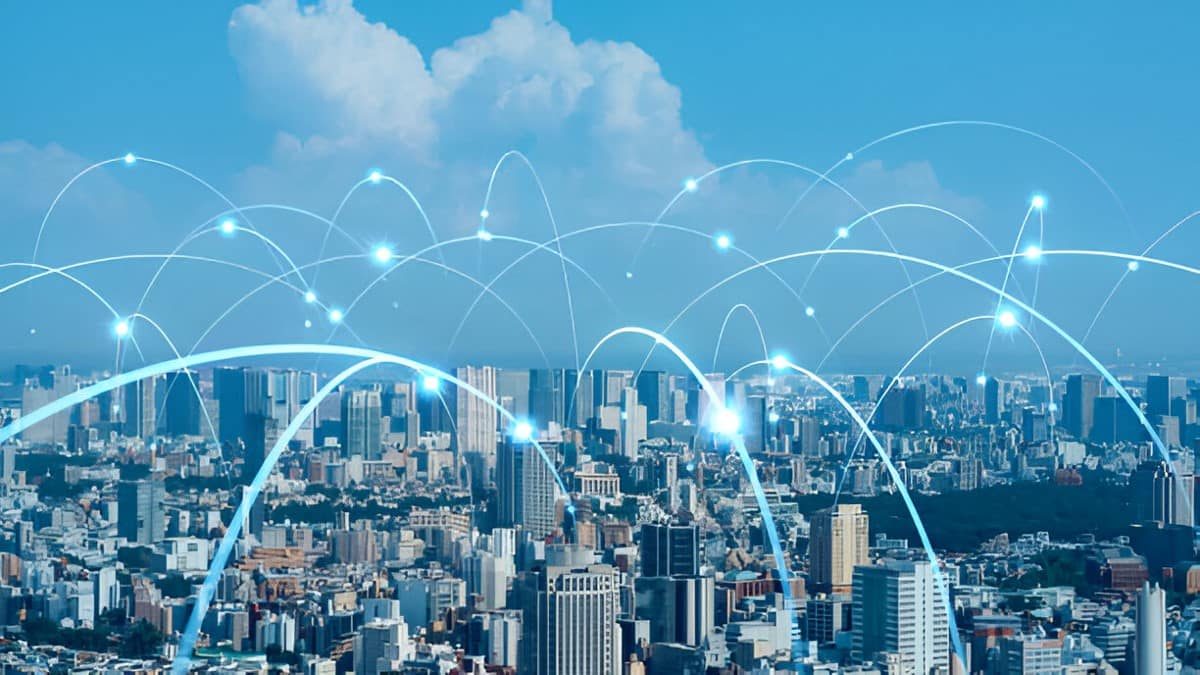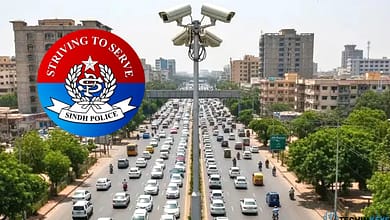
As urban areas continue to expand, the need for efficient, sustainable, and intelligent infrastructure has never been more critical. Smart cities leverage cutting-edge technologies to enhance urban living and optimize resource management. At the heart of this transformation is the Internet of Things (IoT), a network of interconnected devices that communicate and exchange data. This article explores how IoT applications are reshaping urban life, enhancing efficiency, and paving the way for a smarter, more connected future.
Table of Contents
What is IoT in Smart Cities?
The Internet of Things (IoT) refers to a network of devices embedded with sensors, software, and other technologies that enable them to connect and exchange data with other devices and systems over the internet. In the context of smart cities, IoT plays a crucial role by providing the infrastructure for collecting and analyzing data that can enhance urban services and operations.
IoT systems in smart cities consist of various components, including:
- Sensors: Devices that gather data from the environment (e.g., traffic, weather, pollution levels).
- Actuators: Components that can take action based on data received (e.g., traffic lights adjusting their timing).
- Data Analytics: Tools that process and analyze collected data to generate insights and inform decision-making.
- Connectivity: Communication networks that link devices, enabling real-time data exchange.
By integrating these components, cities can create a more responsive, efficient, and sustainable urban ecosystem.
Key IoT Applications in Smart Cities
Smart Traffic Management
Traffic congestion is a significant issue in urban areas, leading to increased travel times, air pollution, and frustration among residents. IoT technologies address these challenges through smart traffic management systems.
Key features include:
- Real-Time Traffic Monitoring: Sensors and cameras placed throughout the city collect data on traffic flow, speed, and density. This information is analyzed in real-time to identify congestion hotspots and optimize traffic signals accordingly.
- Adaptive Traffic Signals: Smart traffic lights adjust their timing based on real-time data, allowing for smoother vehicle flow and reduced wait times at intersections.
- Public Transit Optimization: IoT applications can track public transport vehicles, providing real-time updates to passengers and optimizing routes based on demand.
The result is a significant reduction in congestion, improved air quality, and a better overall commuting experience.
Smart Waste Management
Waste management is another critical area where IoT applications are making a substantial impact. Traditional waste collection methods are often inefficient, leading to unnecessary fuel consumption and missed pickups.
Smart waste management solutions include:
- Smart Bins: These bins are equipped with sensors that monitor fill levels and send alerts to waste management services when they need to be emptied. This data helps optimize collection routes, ensuring that trucks only visit bins that require servicing.
- Data-Driven Recycling: IoT can provide insights into the composition of waste, helping cities design more effective recycling programs and educate residents on proper disposal practices.
- Environmental Monitoring: Sensors can detect odors and pollutants, helping identify issues related to illegal dumping or hazardous waste.
By implementing smart waste management systems, cities can enhance cleanliness, reduce operational costs, and promote recycling and sustainability.
Smart Energy Management
Energy consumption is a significant concern for urban areas, both in terms of cost and environmental impact. IoT technologies can facilitate smart energy management, enabling cities to optimize energy use and integrate renewable sources more effectively.
Key components include:
- Smart Grids: These systems utilize IoT technology to monitor energy demand and supply in real-time. They can dynamically adjust energy distribution, reducing waste and costs.
- Smart Meters: These devices provide consumers with real-time data on their energy usage, empowering them to make informed decisions about their consumption patterns.
- Demand Response Programs: Cities can implement programs that incentivize users to reduce their energy consumption during peak times, helping to stabilize the grid and prevent outages.
By optimizing energy management, cities can lower costs, reduce carbon emissions, and promote sustainability.
Public Safety and Security
IoT applications play a vital role in enhancing public safety and security in urban areas. By integrating various technologies, cities can improve emergency response and overall safety.
Key applications include:
- Smart Surveillance: IoT-enabled cameras equipped with facial recognition technology can assist law enforcement agencies in identifying suspects and monitoring public spaces for suspicious activities.
- Connected Emergency Services: IoT solutions enable faster communication between emergency responders and control centers. For example, connected ambulances can transmit vital patient data to hospitals en route, ensuring prompt treatment upon arrival.
- Environmental Sensors: These can detect hazardous conditions, such as gas leaks or fires, and alert authorities for rapid intervention.
The integration of these technologies enhances public safety, reduces crime rates, and improves emergency response times.
Smart Water Management
Water scarcity is a growing concern in many urban areas, making efficient water management essential. IoT technologies can significantly improve water resource management through smart water management systems.
Key features include:
- Leak Detection Sensors: These sensors monitor water pipelines for leaks, enabling rapid identification and repair, which can save significant amounts of water and reduce costs.
- Smart Irrigation Systems: Using soil moisture sensors and weather data, cities can optimize irrigation schedules for parks and green spaces, conserving water while maintaining aesthetics.
- Water Quality Monitoring: IoT devices can continuously monitor water quality in real-time, detecting contaminants and ensuring safe drinking water for residents.
Implementing smart water management practices promotes sustainability, reduces costs, and enhances the overall quality of urban life.
Benefits of IoT in Smart Cities
The integration of IoT applications in smart cities offers a multitude of benefits:
Improved Efficiency
IoT systems automate processes and reduce manual intervention, leading to more efficient operations across various urban services. This efficiency translates into cost savings and optimized resource allocation.
Enhanced Quality of Life
Smart city applications improve residents’ quality of life by providing better services, such as efficient waste collection, reduced traffic congestion, and enhanced public safety. These improvements foster a more livable and attractive urban environment.
Sustainability
IoT technologies enable cities to optimize resource usage, reduce energy consumption, and minimize waste. This focus on sustainability helps cities meet environmental goals and combat climate change.
Data-Driven Decision Making
Real-time data collection and analysis empower city planners and decision-makers to make informed choices regarding urban development and resource allocation. This data-driven approach leads to more effective policies and initiatives.
Challenges and Considerations
While the benefits of IoT in smart cities are significant, several challenges must be addressed:
Data Privacy and Security
The extensive collection of data raises concerns about privacy and security. Cities must implement robust data protection measures to safeguard residents’ information and prevent unauthorized access.
Infrastructure Costs
Implementing IoT solutions can require substantial investments in infrastructure and technology. Cities must carefully consider the long-term benefits and costs associated with these investments.
Interoperability
Ensuring that different IoT systems and devices can communicate effectively is crucial for seamless integration. Standardization and collaboration among technology providers can help address this challenge.
The Future of IoT in Urban Development
The future of IoT in smart cities looks promising as technology continues to evolve. Advancements in artificial intelligence (AI) and machine learning (ML) will enhance data analytics capabilities, allowing for more sophisticated urban management strategies.
Moreover, public-private partnerships will play a vital role in funding and implementing IoT initiatives. Collaboration between government agencies, technology providers, and private companies will foster innovation and drive the development of smarter urban environments.
Conclusion
IoT applications are fundamentally transforming urban life, making cities smarter, more efficient, and more sustainable. From traffic management to waste reduction, the integration of IoT technologies is enhancing the quality of life for residents and paving the way for future innovations in urban living. As cities continue to embrace these advancements, the potential for a connected, efficient, and sustainable urban environment becomes increasingly achievable.
FAQs
1. What are smart cities?
Smart cities leverage technology and data to enhance urban services, improve efficiency, and promote sustainability, making life better for residents.
2. How does IoT improve traffic management?
IoT improves traffic management by using real-time data from connected sensors and cameras to optimize traffic flow and reduce congestion.
3. What role does IoT play in waste management?
IoT enhances waste management by enabling smart bins to monitor fill levels and optimize collection routes, improving efficiency and reducing costs.
4. Can IoT help with energy management?
Yes, IoT applications can monitor energy consumption in real-time, promoting better demand management and reducing energy waste.
5. What are the challenges of implementing IoT in smart cities?
Challenges include data privacy and security concerns, infrastructure costs, and the need for interoperability between different IoT systems.



